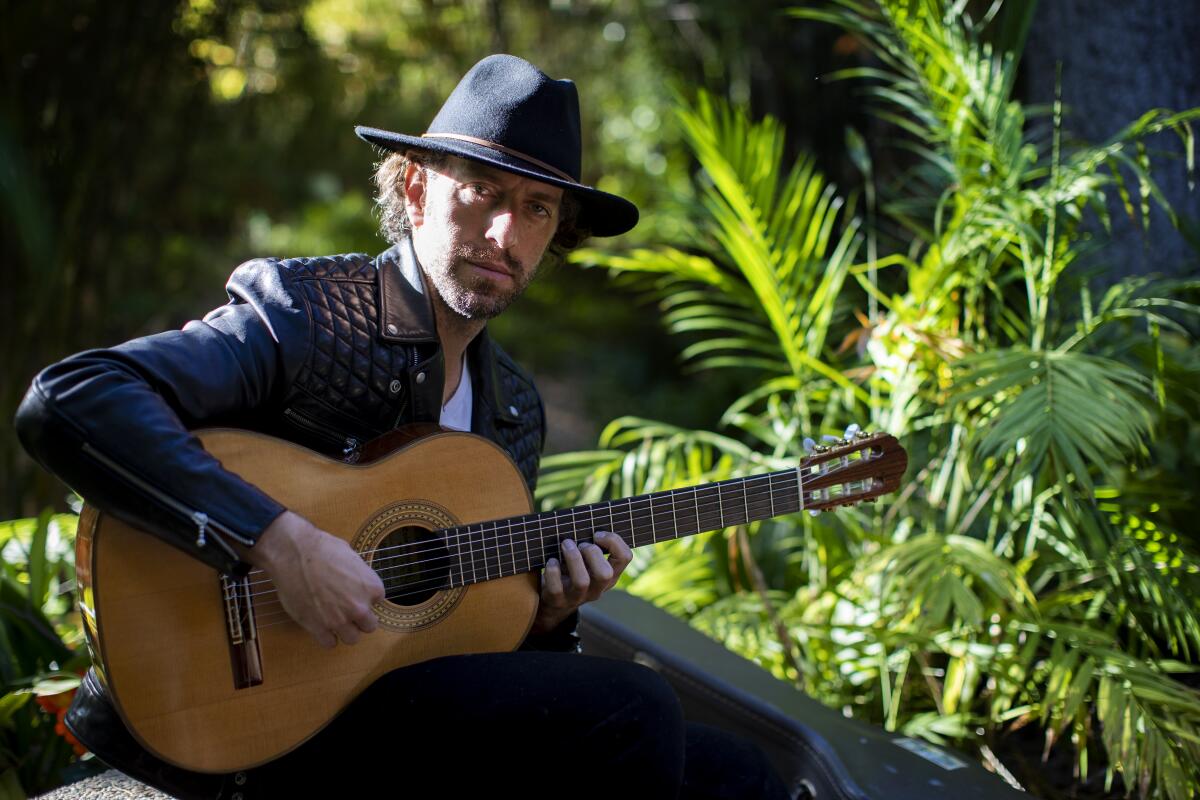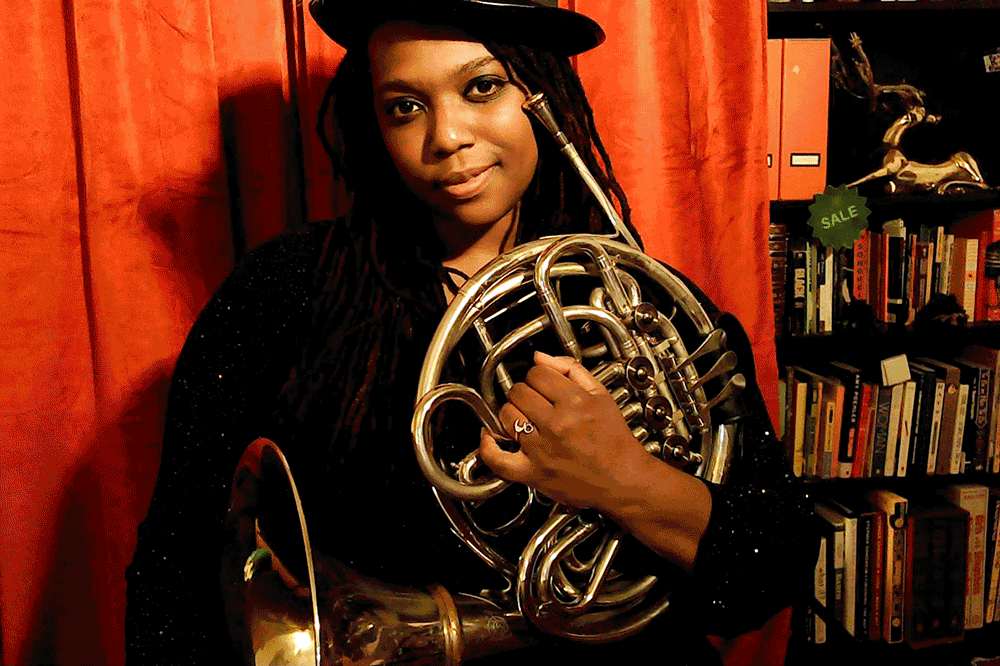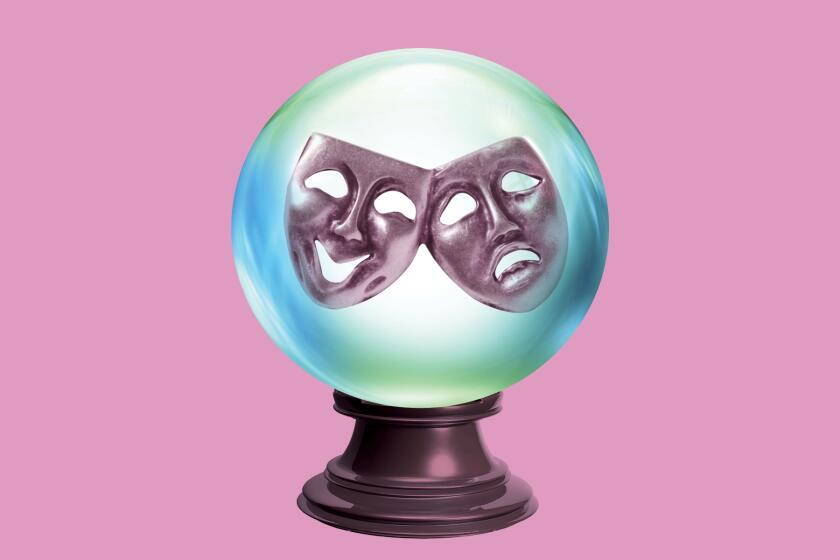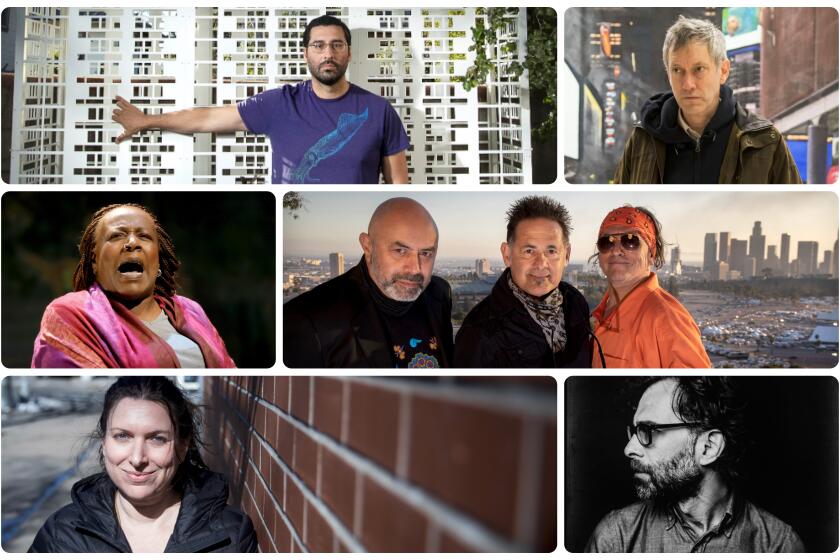For this L.A. guitarist, pandemic isolation deepens the music

- Share via
He started last year with high hopes of touring China and ended it with an album he hadn’t intended to make. COVID-19 turned life topsy-turvy that way, says classical guitarist Giovanni Piacentini.
As the nation marks the one-year anniversary of pandemic closures, Piacentini says the difficult circumstances have given him perspective and allowed him to grow as a musician and as a human.
The serendipitous album “Adrift in the Garden of Beautiful Things” is a collaboration with violinist Tim Fain. The original idea was to produce a single to facilitate the China tour, but as the coronavirus spread in that country and made landfall in the U.S., a drastic course correction became necessary. The duo launched into a full-length production, with Piacentini playing his parts in Los Angeles and Fain working on his in Montana.
Violinist Melissa Tong landed her dream job playing a Broadway musical. Then the pandemic became the ultimate showstopper. She’s one of 11 classical musicians from both coasts who share their stories of struggle, survival and hope.
Both were accustomed to recording in their home studios, so that part wasn’t new. But how to create the energy of the duet from different locations presented a fresh challenge.
“There were endless emails with tracks,” Piacentini says. “And he would play his violin again with my guitar, until we had a take that we liked.”
My story is the textbook immigrant story, where I came over from Mexico by way of Italy, and my artistic voice found a home in the U.S.
— Giovanni Piacentini, guitarist
Piacentini was born in Mexico City, the son of a Mexican mother and an Italian father. He landed a spot at the Berklee College of Music in Boston and arrived in the U.S. at age 19.
“My story is the textbook immigrant story, where I came over from Mexico by way of Italy, and my artistic voice found a home in the U.S.,” says Piacentini, who is now the father of two young daughters and is completing his PhD at UCLA. He also serves as a teaching fellow, remotely instructing freshmen and sophomores in musicianship.
The World Health Organization announced the coronavirus outbreak had become a pandemic on March 11, 2020. Since then, the virus has seemingly touched all aspects of life in Southern California and beyond. The Times looks back on a full year of life in a pandemic.
While still an undergrad, Piacentini made a list of his favorite composers. It was topped by an American, Richard Danielpour. After graduating and moving to New York, Piacentini emailed Danielpour some of his scores. Much to his surprise, Danielpour called to say that he liked Piacentini’s music and encouraged him to apply to the Manhattan School of Music, where Danielpour was teaching at the time.
Over the next seven years, Piacentini met influential New York composers and musicians, including Nico Muhly and Fain. He never could have guessed that his connection with the latter would come to define his experience of the pandemic.
Another important musical collaboration also provided light in the darkness. For some time now, Piacentini has been writing a concerto for noted classical guitarist Eliot Fisk. It does not yet have a premiere date, but now that Piacentini has had more time to work on the music, he feels it has become deeper and more powerful because of the specific nature of pandemic isolation and confinement.
As the one-year anniversary of the COVID-19 pandemic arrives, we want to hear from Angelenos in the theater industry about what life has been like since.
Teaching remotely at UCLA has also figured largely into Piacentini’s year, and he recently got appointed a composition instructor for the National Children’s Chorus. In keeping with his positive attitude, he says he has found that virtual classes have allowed him to connect with his students on a more personal level.
“There is a synergy that was created because we were all forced into adaptation mode,” he says. “This made us more inclusive and communicative, more tolerant and more patient, and more willing to work with one another.”
The same thing is true, he says, for society as a whole.
Daniel Fish, Culture Clash, Dael Orlandersmith, Richard Maxwell, Annie Dorsen and Lars Jan reveal much loss — but also see a way forward.
More to Read
The biggest entertainment stories
Get our big stories about Hollywood, film, television, music, arts, culture and more right in your inbox as soon as they publish.
You may occasionally receive promotional content from the Los Angeles Times.















